In a world where artificial intelligence is revolutionizing communication, two titans stand at the forefront: Google Bard vs ChatGPT.
Both are extraordinary linguistic models, capable of simulating human conversation, writing compelling content, and answering complex queries.
But when these two technological marvels go head-to-head, which one emerges victorious? Dive into this comprehensive exploration to discover the champion in this digital duel.
Understanding AI-Language Models
As an SEO expert, the rise of AI language models like Google Bard and ChatGPT offers exciting new opportunities. These sophisticated AI tools can generate content that is not only engaging but also SEO-optimized, a game-changer in the digital marketing landscape.
They can craft compelling narratives, weave in targeted keywords seamlessly, and even create unique meta descriptions and titles. From drafting long-form content to generating creative ad copy, their potential applications are vast.
Mastering these AI language models can give you an edge in the competitive digital space, allowing you to create content that resonates with your audience and ranks well on search engines.
What is Google Bard? ✓ Google Bard vs ChatGPT
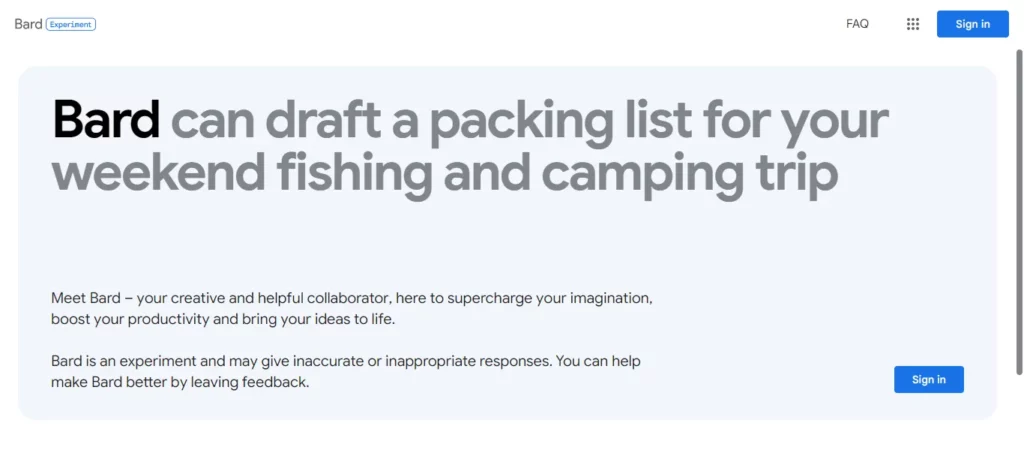
In the digital arena, where language and artificial intelligence intertwine, Google Bard emerges as a groundbreaking entity. Crafted by the tech giant Google, Bard is an artificial intelligence model renowned for its uncanny ability to mimic human text generation.
Infused with a wealth of knowledge drawn from the vast expanses of internet text, Bard can create engaging narratives, craft compelling ad copies, and even spin a captivating tale or two.
It's like having an inexhaustible digital scribe at your fingertips, ready to create, captivate, and communicate. However, as wondrous as Bard is, it's not without its Achilles' heel.
As an echo of the data it was trained on, it can sometimes replicate the biases inherent in its training material or even generate content that may be deemed offensive. So, while it's a formidable tool in the AI arsenal, it's essential to wield it with awareness and responsibility.
What is ChatGPT? Google Bard vs ChatGPT
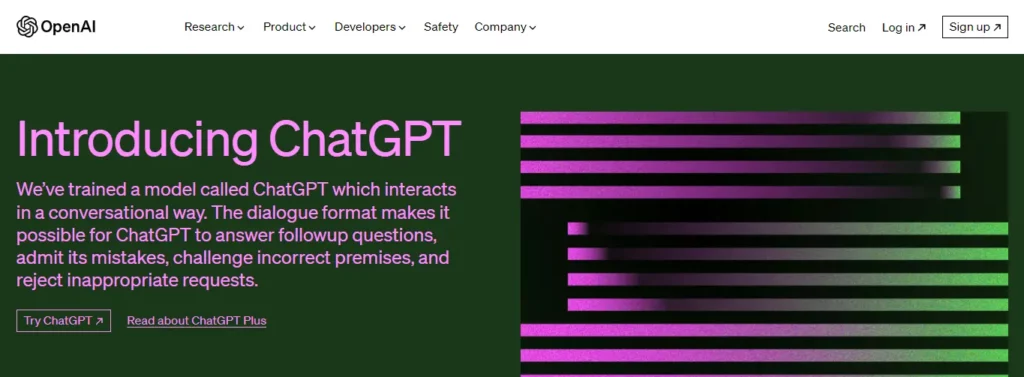
A brainchild of OpenAI, ChatGPT is a cutting-edge language model that has been making waves in the digital world. Powered by machine learning, this AI marvel has the ability to generate text that closely resembles human writing, making it a highly useful tool in various applications.
It's like having a virtual assistant who can draft emails, write articles, or even assist in complex tasks like coding.
Initially conceived as a chatbot, ChatGPT has far surpassed its original purpose. Its strength lies not just in carrying out chat-based tasks, but also in its adaptability across a spectrum of use cases, from content creation to customer support and beyond.
For SEO specialists and copywriters, ChatGPT offers the prospect of generating content that's not only engaging but also contextually relevant, opening up new avenues for content strategy and audience engagement. Harnessing the power of ChatGPT could well be the key to unlocking the next level of digital marketing success.
Key Comparisons for Google Bard vs ChatGPT
Training and Learning Approach
The training and learning approach of Google Bard and ChatGPT differ quite significantly. Bard leverages Google's extensive datasets to learn and generate text. On the other hand, ChatGPT uses a mix of supervised fine-tuning and reinforcement learning from human feedback. As a result, ChatGPT tends to generate more contextually appropriate responses, while Bard can often provide more creative outputs.
Conversational Abilities
ChatGPT shines when it comes to conversational abilities. Given its initial design as a chatbot, it's adept at maintaining a conversation that feels natural and human-like.
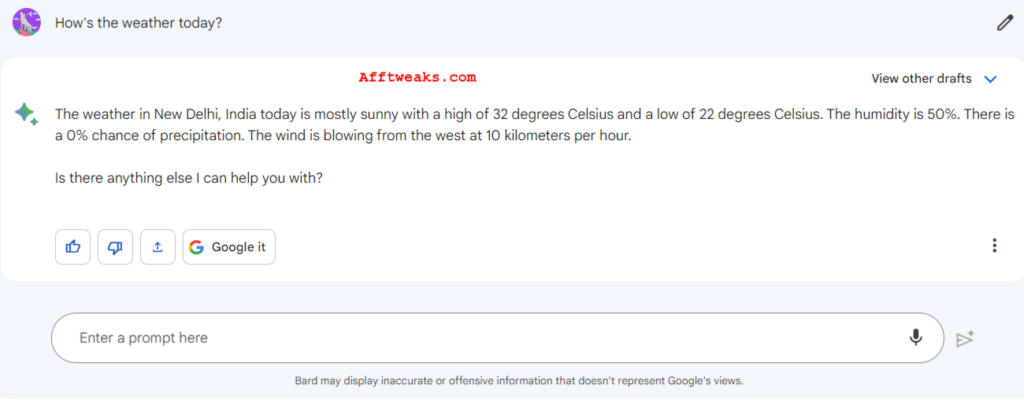
For instance, if you ask ChatGPT, “What's the weather like today?” it might respond, “As an AI, I don't have real-time access to current data, including weather. However, you can check a reliable weather forecasting site for this information.”

Google Bard, while not primarily designed for conversation, still demonstrates a solid level of conversational proficiency. It can understand and respond appropriately to prompts, albeit with a slight creative twist.
For instance, to the same question, Bard might respond, “As an AI, I exist in a world without weather. However, I recommend checking an online weather forecast to find the information you need.”
So basically, the if we consider Google Bard vs ChatGPT, ChatGPT is going to be the winner, at least as of now.
Contextual Understanding: Google Bard vs ChatGPT
In terms of contextual understanding, both Google Bard and ChatGPT have impressive capabilities. They can comprehend the context of a conversation and provide responses that are relevant and make sense. However, ChatGPT often outperforms Bard in longer conversations, maintaining a clear thread of discussion. In contrast, Bard may occasionally veer off into more imaginative responses.
Text Generation Capabilities
Both models are exceptional when it comes to generating human-like text. Bard, thanks to its training, is highly skilled at creating engaging narratives, a feature that's extremely useful for story-telling or content creation.
Google Bard, backed by Google's continually updated databases, is a powerhouse for generating information-rich content. It can provide a wealth of current and relevant information, which can be invaluable for tasks that require up-to-date data or trend analysis.
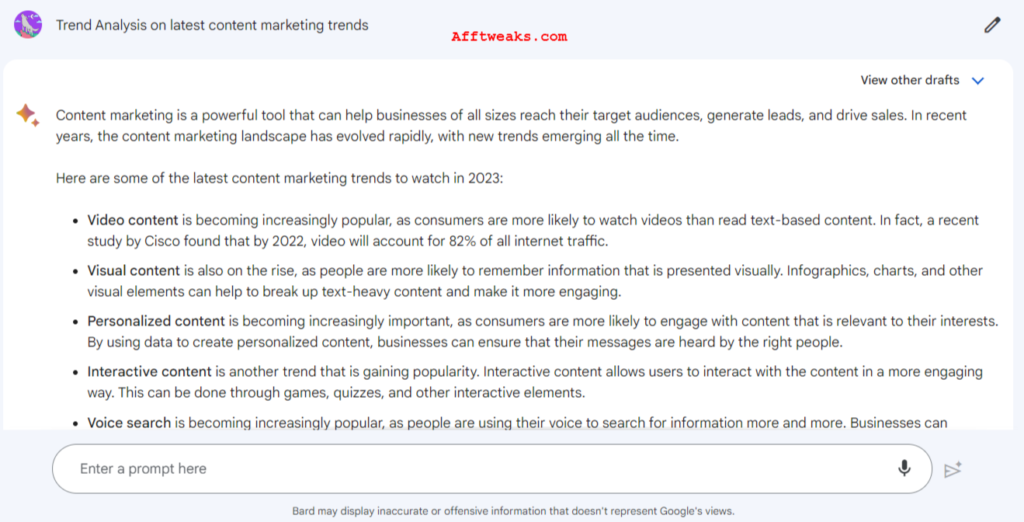
This feature, coupled with Bard's ability to generate coherent and engaging text, makes it an excellent choice for content creation that relies heavily on the latest information.
On the other side, ChatGPT truly shines in its capacity to generate engaging, context-rich, and human-like text. Its strength lies in understanding the nuances of the provided input and crafting responses that are not only relevant but also infused with a conversational tone.
This aspect of ChatGPT is particularly beneficial for tasks that require a human touch, such as creative writing, storytelling, or engaging directly with customers in a conversational manner.
In essence, while Google Bard is a master of up-to-date, information-rich text generation, ChatGPT excels at creating engaging, human-like content. Depending on the task at hand, one may find either Google Bard or ChatGPT to be a more suitable tool.
Data Training and Updates: Google Bard vs ChatGPT
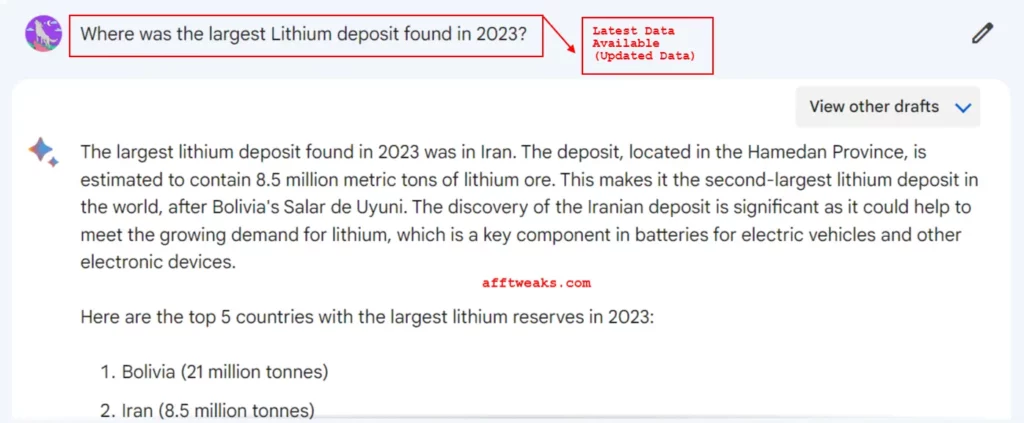
Google Bard, with its continual access to Google's vast and up-to-date databases, may have an edge in generating content relevant to current trends.

ChatGPT, on the other hand, has its knowledge cut-off in September 2021, which may limit its ability to provide real-time, trend-related content.
User Interaction: Which one is better Google Bard vs ChatGPT?
ChatGPT stands out in its ability to understand complex instructions and generate detailed responses. This allows for a more interactive user experience. Google Bard, while proficient in generating coherent text, may not match ChatGPT's level of interaction.
Application Scope for Google Bard vs ChatGPT?
Both Google Bard and ChatGPT excel in various applications, carving out their respective niches in the AI landscape.
Google Bard, with its real-time, updated data access, is a potent tool for tasks requiring current information. This makes it highly valuable in fields such as news reporting, trend analysis, market research, and so on. Moreover, its proficiency in crafting coherent and engaging text makes it a reliable ally for content creators, copywriters, and SEO experts.
ChatGPT, on the other hand, boasts a remarkably diverse application scope. Beyond content creation and customer support, it has proven to be a capable tutor, offering assistance in learning various subjects. Its ability to understand and respond to complex instructions makes it a handy tool for tasks such as coding or drafting legal documents.
Its language translation capabilities open up opportunities for international communication and collaboration. This remarkable adaptability of ChatGPT lends it a versatile edge, making it a valuable tool for a wide range of users, from students and educators to businesses and professionals.
In essence, the application scope of both these models extends far and wide, each bringing unique strengths to the table. The choice between Google Bard and ChatGPT would depend on the specific task at hand and the model's ability to meet those requirements effectively.
Use Cases of Google Bard
Google Bard, as a robust AI model, has found applications in a plethora of areas, each leveraging its unique ability to provide up-to-date, relevant, and engaging content.
- Content Creation: For writers, bloggers, and digital marketers, Bard serves as a reliable ally in generating creative and engaging content. Its ability to stay current with the latest trends and information is a boon for creating relevant and compelling narratives.
- Research Assistance: For researchers and analysts, Bard can prove to be a valuable resource, thanks to its access to Google's expansive databases. By generating summaries of large data sets or providing insights on recent trends, Bard can significantly aid the research process.
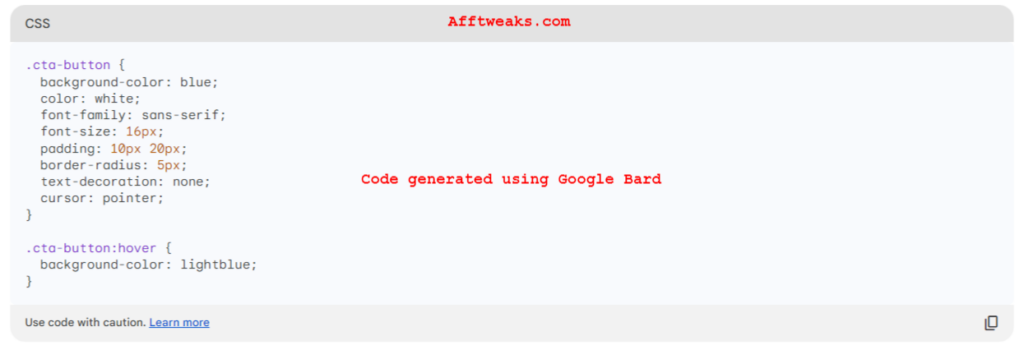
- Trend Analysis: In business and marketing, staying updated with the latest trends is crucial. Bard can analyze vast amounts of data to provide real-time trends, offering valuable insights for decision-making.
Use Cases of ChatGPT
ChatGPT, with its advanced language understanding and generation capabilities, offers extensive applications that reach far beyond its initial purpose as a chatbot.
- Chatbot: ChatGPT excels as a chatbot, providing human-like interaction for customer support, feedback collection, and user engagement. Its ability to understand and respond to various inputs makes it a versatile communication tool.
- Virtual Assistant: As a virtual assistant, ChatGPT can draft emails, schedule meetings, and even assist with coding or legal drafting. Its ability to adapt to a variety of tasks makes it a valuable tool for improving productivity.
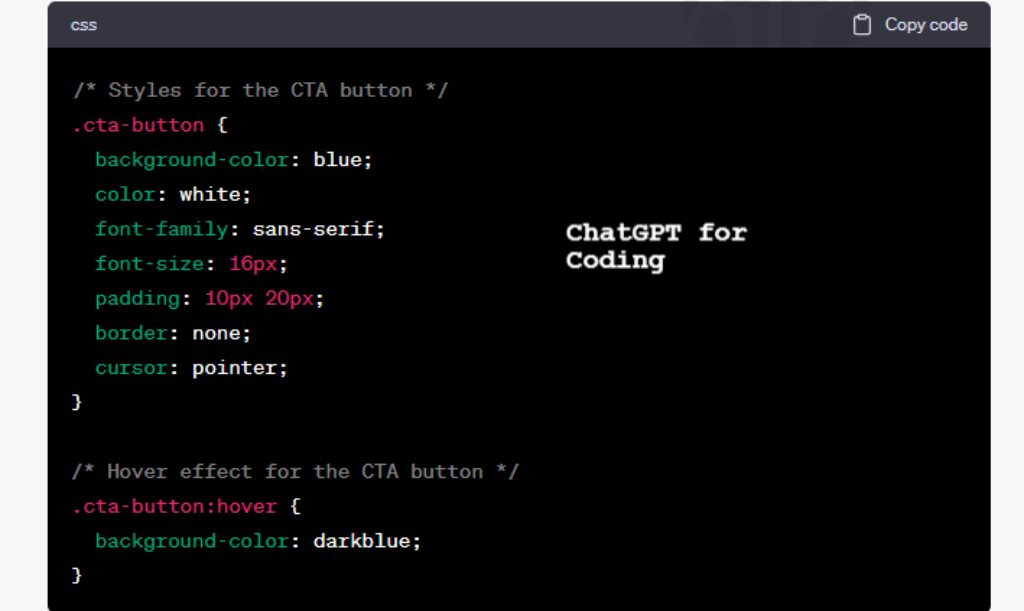
- Content Generation: For content creators and copywriters, ChatGPT can generate engaging, SEO-friendly content. Its human-like writing style and contextual awareness can add a unique touch to blogs, articles, and social media posts.
- Tutoring and Learning: With its ability to provide detailed explanations and engage in interactive dialogues, ChatGPT has found use in educational settings, serving as a tutor in various subjects.
ChatGPT Plus Membership
ChatGPT, developed by OpenAI, is a versatile AI tool capable of tasks ranging from drafting emails to simulating characters for video games, thanks to its ability to generate human-like text. It offers a premium subscription known as ChatGPT Plus for $20 per month.
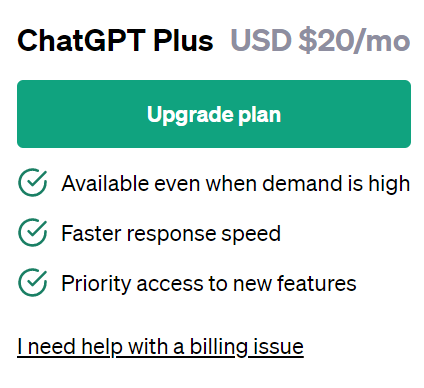
This subscription provides benefits like uninterrupted access during peak times, faster response times, and priority access to new features. It's an excellent option for users wanting to fully exploit ChatGPT's capabilities. However, OpenAI still provides free access to ChatGPT for users not opting for the subscription.
Use Cases of Google Bard and ChatGPT for SEO Marketers
Google Bard: Which one is better for SEO Marketers Google Bard vs ChatGPT?
For SEO marketers, Google Bard can be a game-changer. Here's how:
- Content Generation: Bard is a powerful tool for creating SEO-friendly content. It can craft blog posts, articles, and website content that are engaging, informative, and creative. This high-quality content can help drive organic traffic, improve search rankings, and increase user engagement.
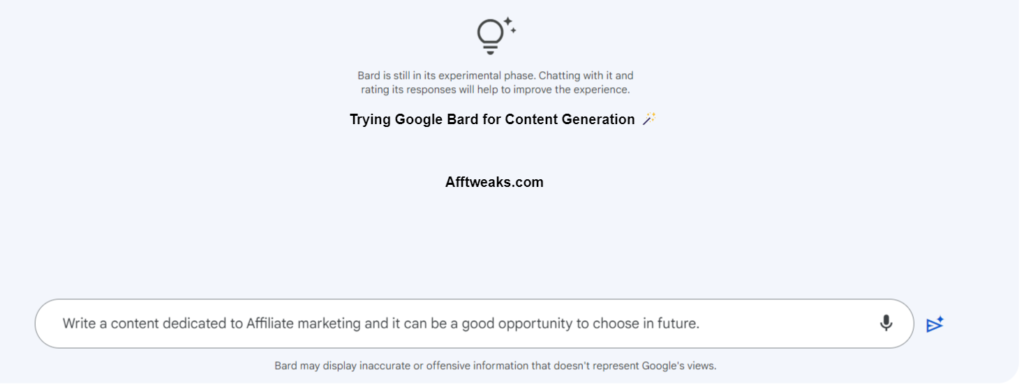
- Ad Copy Creation: Bard's ability to generate unique, imaginative text makes it ideal for ad copy creation. It can craft compelling ad copies that not only align with SEO strategies but also resonate with the target audience.
- Keyword Integration: Google Bard can seamlessly integrate targeted keywords into the content, ensuring that it remains SEO-friendly without disrupting the natural flow of the text.
- Meta Descriptions and Titles: Crafting catchy, SEO-optimized meta descriptions and titles is crucial for improving click-through rates. Bard can assist in creating these, ensuring they're engaging and contain the relevant keywords.
ChatGPT: Which one is better for SEO Marketers Google Bard vs ChatGPT?
ChatGPT also provides a multitude of uses for SEO marketers:
- Long-form Content Creation: ChatGPT can generate long-form content like blog posts or articles that are SEO-friendly. This content can improve search engine rankings and drive organic traffic to the website.

- SEO Recommendations: ChatGPT can analyze your current SEO strategy and provide actionable recommendations for improvement.
- Question and Answer Content: ChatGPT can create Q&A style content, which is increasingly important for voice search and featured snippets in search engine results.
- Content Repurposing: ChatGPT can take existing content and repurpose it into a new format. For example, it can transform a blog post into a script for a video or a podcast, thereby extending the reach of your content.
- Social Media Posts: Social signals are becoming more important in SEO. ChatGPT can create engaging social media posts that drive engagement and shares, creating more social signals for your website.
In essence, both Google Bard and ChatGPT can be powerful allies for SEO marketers, aiding in various aspects of content creation and SEO strategy formulation. The choice between the two would depend on the specific requirements and the nature of the task at hand.
Pros and Cons of Google Bard
Google Bard, with its creative prowess, offers several advantages:
Pros and Cons of ChatGPT
ChatGPT offers its own set of strengths and weaknesses:
FAQs on Google Bard vs ChatGPT
What is the main difference between Google Bard and ChatGPT?
The main difference lies in their training approach and primary use cases. While Google Bard is renowned for creative text generation, ChatGPT is versatile, excelling in conversational abilities and contextual understanding.
Can Google Bard and ChatGPT understand and reply in multiple languages?
Yes, both models have multi-language capabilities, although the proficiency might vary depending on the specific language.
Are these models capable of learning and improving over time?
While they don't learn in real time, developers continually train and update these models using new data to improve their performance and capabilities.
Can these AI models completely replace human writers?
While they're powerful tools, AI models like Google Bard and ChatGPT cannot fully replace human creativity, insight, and nuanced understanding of language.
How accurate are these AI models?
The accuracy of both models depends on the data they've been trained on. While they can generate impressive results, they may also produce errors or bias.
What is ChatGPT Plus?
ChatGPT Plus is a subscription plan offered by OpenAI for the ChatGPT model. Priced at $20 per month, it provides enhanced access and features to subscribers.
What are the benefits of ChatGPT Plus?
ChatGPT Plus subscribers enjoy uninterrupted access to ChatGPT even during peak times, faster response times, and priority access to new features and improvements.
Can I still use ChatGPT for free if I don't subscribe to ChatGPT Plus?
Yes, OpenAI continues to offer free access to ChatGPT for users who do not wish to subscribe to ChatGPT Plus.
Is ChatGPT Plus worth it?
If you are a heavy user of ChatGPT and rely on it for important tasks, the Plus subscription can be a worthy investment. It provides an enhanced user experience and ensures uninterrupted usage.
Google Bard vs ChatGPT: The Final Verdict
In the final analysis, both Google Bard and ChatGPT offer unique strengths. Given Google's expansive and frequently updated datasets, Bard has an advantage in terms of up-to-date information.
It's well-positioned to generate content that's current and in line with recent trends and events, making it a valuable tool for tasks requiring real-time relevance.
On the other hand, ChatGPT, with its foundation in OpenAI's advanced GPT-3 model, excels in creative and contextually aware text generation. Its ability to understand and respond to input with a high level of contextual relevance is commendable. Moreover, its knack for crafting creative, human-like text is unparalleled, which comes in handy for tasks requiring a more personal touch, like storytelling or engaging with customers.
Choosing between the two ultimately depends on the specific use case. If the task requires generating content with the latest, most up-to-date information, Google Bard may be the better choice. However, if the focus is on creative, contextually aware text, ChatGPT might take the lead. Each brings its own strengths to the table, and understanding these can help users harness their potential to the fullest.
Content is free. When you buy through links on my site, I may earn an affiliate commission. Learn more




